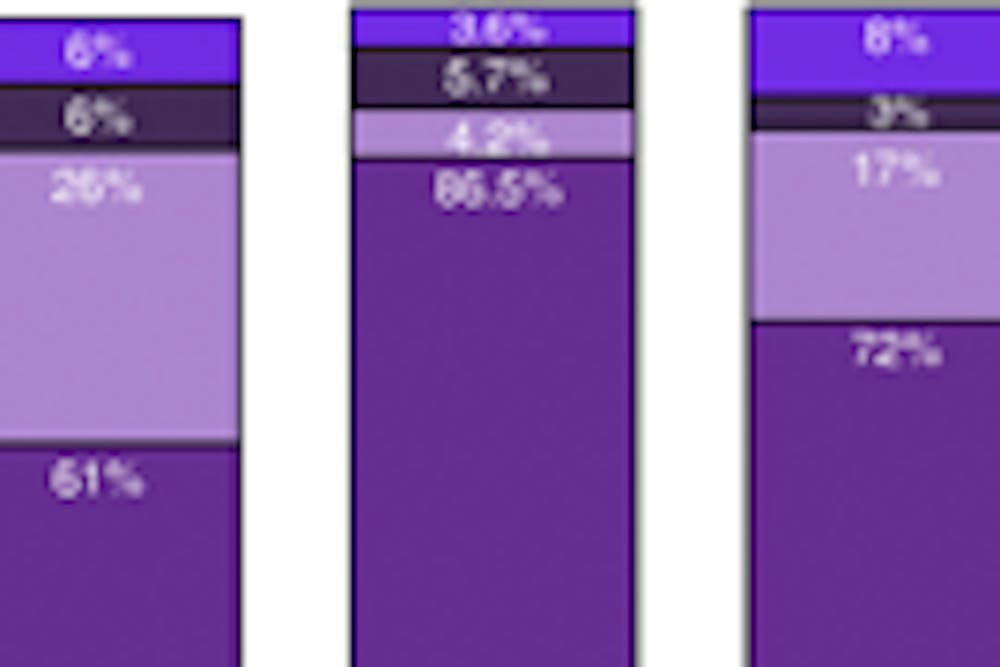Wharton undergraduates have fared reasonably well in the face of the tough economy.
The class of 2009 showed a 6-percent drop in employment levels from the previous year. According to the Wharton Undergraduate Class of 2009 Career Plans Survey Report, 80.5 percent of the class of 2009 reported having jobs by the fall after graduation, compared to 86.5 percent the previous year.
Penn President Amy Gutmann said the slight drop “is relatively good news” because “it means a huge proportion of students got jobs” despite the economic downturn.
Career Services Director Patricia Rose also agreed, calling the data “outstanding,” considering how these students faced the “worst employment market in many, many years.”
The percentage of students still seeking full-time employment at the time of the survey was 9.2 percent — which means that “91 percent [are] doing something that they want to do,” Rose said.
Across all of Penn’s undergraduate schools, 56 percent of class of 2009 graduates have acquired full-time positions, compared with 68 percent of the class of 2008.
By comparison, fewer graduates from other Ivy League universities — such as Cornell and Princeton universities — have acquired full-time positions.
At Cornell, 38.3 percent of the 56.3 percent of the class of 2009 that responded to a survey was employed full-time, compared with 55.2 percent of the respondants from the class of 2008.
At Princeton, of the 68.5 percent of the class of 2009 that sought full-time employment, 29.6 percent was employed. By comparison, 35.7 percent of the 68.5 percent of the class of 2008 that was actively looking for employment had acquired positions.
One possible factor in the decrease in employed students is an increase in the number of students applying to graduate schools. The number of students seeking further education rose from 18 to 21 percent for all Penn undergraduate schools, according to a preliminary Career Services report which has not yet been officially released.
Though the majority of students usually prefer to take time off before continuing school, Rose explained, usually about 20 percent of undergraduates choose to go directly to graduate school.
The percentage of students who are self-employed immediately after graduation also nearly doubled, from 1.1 percent to 1.9 percent.
“If you’re interested in doing something entrepreneurial, then what better time when the job market is bad?” Rose said. “Your opportunity cost isn’t as low if there are a lot of opportunities out there.”
On the other hand, the percentage of students who found jobs in financial services and consulting dropped from 54 to 46 percent.
But it’s still a “lopsided figure,” Rose said, “with more than one-third of students going into these industries,” Rose pointed out.
“It isn’t like those jobs went away,” she explained, “there were fewer jobs but Penn people still got their share.”
And Rose expressed hope for the class of 2010.
The current senior class is “very focused,” she described. They are “participating in many of our programs and services — attending workshops and career fairs, making appointments with members of our staff, getting their personal statements critiqued and signing up for interviews.”
“It’s encouraging that recruiters are actively on campus already,” Gutmann noted.
Rose agreed.
“We think that the economy is not going to rebound that quickly,” she said, “but our students are going to continue to hold their own.”



